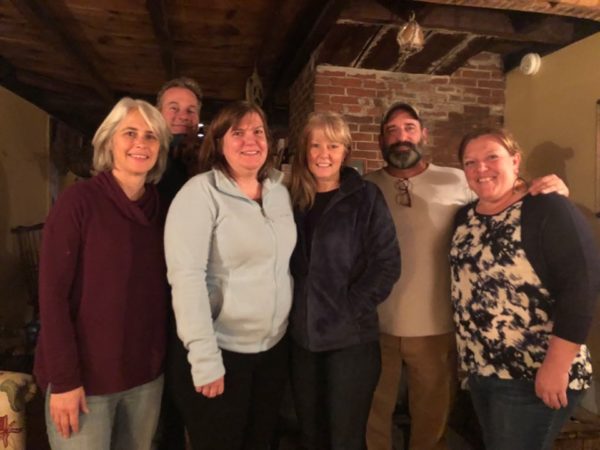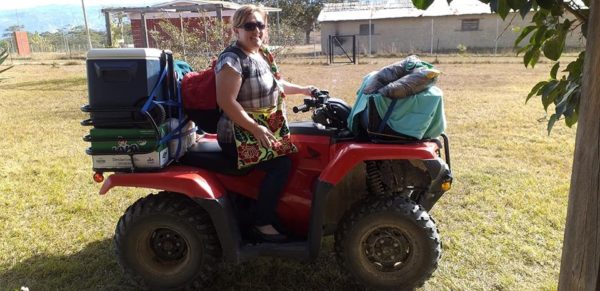Have you heard the term “home assignment”? Here’s a short quiz to test your knowledge about this part of missionary life. It’s Monday, and I’m sure you’re not in the mood for something difficult, so we’re talking about four easy questions, I promise.
- Home assignment means:
- a. an assignment a teacher gives to be done at home
- b. a sentence of incarceration to be served at one’s place of residence
- c. time off accrued during times of ministry
- d. a coveted construction task of building a house

[c] Home assignment is time that overseas missionaries accrue during their days of ministry that can be spent in their home country. Different organizations have different standards for this time, but in our organization we get a few months’ for each year of work. Some missionaries take short trips to their home country each year and some wait for 2 or more years and then take a longer time of travel away from their country of service. My last home assignment was in 2014 and this year I will be stateside for about 10 months.
2. Missionaries spent their time of home assignment:
- a. in pure vacation–it’s the most relaxing time ever
- b. in working remotely–the exact same ministry carries on, just long-distance
- c. in raising support–the time is focused exclusively on finding new people to partner in the ministry
- d. in a combination of rest, work, travel, and sharing about the ministry with churches and individuals

[d] During home assignment, I will try to strike a balance between many things. I need to find time to rest and decompress after a long stretch of challenging ministry. I have friends and family members I haven’t seen for more than four years and want to catch up with them. I need to update my churches and supporters on the ministry with the Nahuatl. I have a list of work that needs to be done, some of it things that just don’t get accomplished in the hectic life in the village. I will do consultant meetings remotely and have already had a collection of requests for long-distance help with some literacy issues. I will travel extensively and also make myself available to local ministries desiring to hear about what God is doing in our little corner of the world.
3. Many missionaries struggle with reverse culture shock, which means:
- a. an aversion to people in one’s home culture wearing their hats backwards
- b. a difficulty re-adjusting to one’s home culture, which is no longer familiar
- c. forgetting how to speak the language of one’s home country
- d. looking and acting like a major dork in one’s home country
- e. both b and d


[e] Technically the answer could be [b] but I’m going to go with the bonus add-on of feeling like a dork. Missionaries experience their initial culture shock when they move to their host country (in my case, Mexico). Things are new, people react in unexpected ways, and there are lots of unfamiliar things to become accustomed to. That is difficult, but expected. Upon returning to one’s home country, however, the transition should be simple, right? Many missionaries do not find that to be the case. We have to adjust to the food, familiarize ourselves with the overwhelming amount of options in the supermarket, and get up-to-speed with technology. (On my last home assignment a lady at a store told me that my credit card had a chip and I turned it over looking for any “chip” missing from it that would make it unusable. She repeated herself several times, but I was still lost.) The difference between the initial culture shock when one moves to a foreign land and the culture shock one experiences when “coming home” is simply that the first scenario is expected and the other one often comes as a shock, if you’ll forgive my pun.
4. Churches can help their missionaries during home assignment by:
- a. doing nothing because missionaries don’t ever need help
- b. giving them opportunities to interact with members and share about their ministry
- c. recognizing that each missionary is different and asking them what help they might need
- d. both b and c

[d] See, I told you the quiz would be a piece of cake. If your church has missionaries on home assignment this year, get in touch with them. Ask them how you can help. They might need a few months to decompress. They might need housing, or winter clothes for their kids, or a chance to share their stories, or a sympathetic ear. They might need to simply sit at church for a few weeks and reconnect with the body, learn the new songs, and take a deep breath. The easiest way to know is to ask, but you can be certain that your missionaries need you during home assignment as much as they need you when they are serving overseas.
Thank you to all the members of the Body who serve us so well. Thank you for being there for us as we reach others.